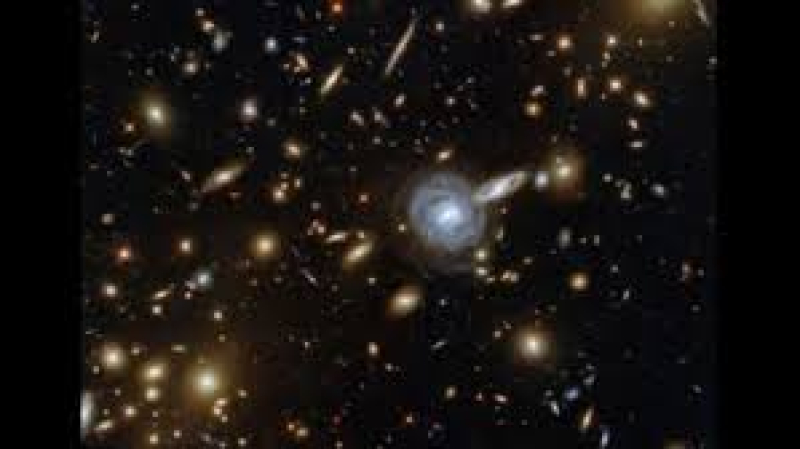- Guterres welcomes India-Pakistan ceasefire |
- China now favourite higher edu destination for BD students |
- Dhaka’s air ‘unhealthy for sensitive groups’ Sunday morning |
- CA Prof Yunus lauds Modi, Sharif for ceasefire |
- India, Pakistan agree to a ceasefire in US-mediated talks |
Astronomers discover first ‘bubble of galaxies’ a billion light-years wide

A team of international astronomers have discovered the first “bubble of galaxies”, an unimaginably huge cosmic structure measuring one billion light-years across that is thought to be a fossilised remnant from just after the Big Bang.
The bubble is 10,000 times wider than the Milky Way galaxy, according to the scientists who made the discovery and published their findings this week, reports Al Jazeera.
“This phenomenal bubble is a fossil from the time of the Big Bang 13 billion years ago when the universe was formed,” team member Cullan Howlett, from The University of Queensland’s School of Mathematics and Physics, said in comments published on Thursday.
“We weren’t even looking for it, but the structure is so huge it spilled to the edges of the sector of the sky we were analysing,” Howlett said in an interview published by the University of Queensland.
“It dwarfs many of the largest known structures, such as the Sloan Great Wall and Bootes supercluster, which actually form part of this bubble,” he said.
“What makes it even more unbelievable is it’s right in our back yard,” he added.
The bubble is centred approximately 820 million light-years from our own galaxy, in what astronomers call the nearby universe.
Howlett said the discovery provides a clearer picture of the rate of expansion of the universe, and the findings could revolutionise cosmology.
“Our analysis suggests because this bubble is larger than expected, the universe has expanded further than originally predicted,” he said.
“We’re now a step closer to a great change in the field of cosmology, where the whole model of the universe might need re-evaluating.”

